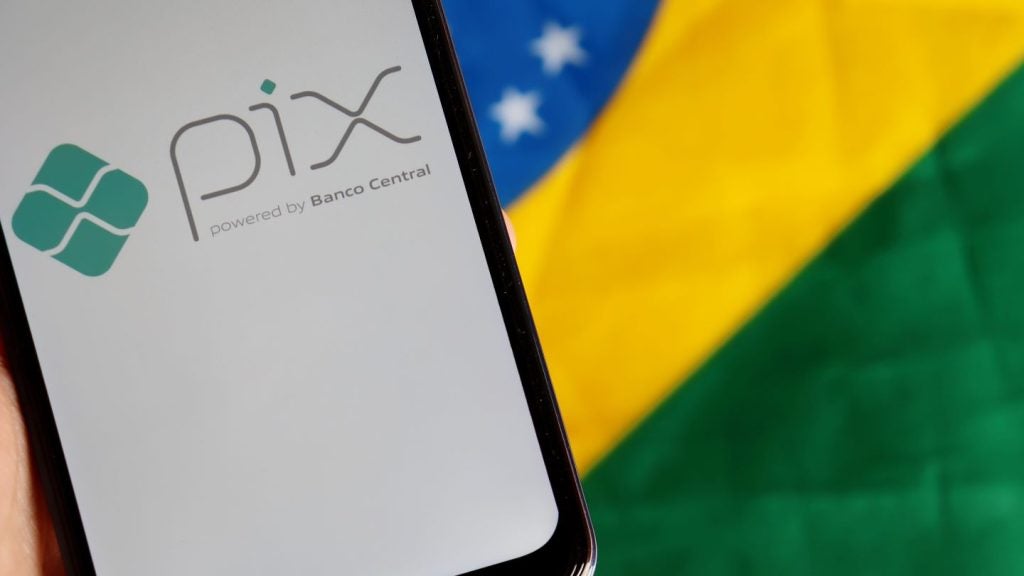The ubiquitous SMS is proving to be a powerful base for
solutions in the payments market, with uses ranging from ticketing
to two-factor security. Andrew Bud, CEO executive chairman of SMS
payments market leader mBlox, provides EPI with insight into the
current state of play and the growth he believes lies
ahead.
Buying tickets for buses operated by
UK public transport company Arriva has got easier thanks to the
introduction of a mobile-phone ticketing solution from mBlox and
Concept Data Technologies.
“The Arriva service represents a great
breakthrough,” Andrew Bud, executive chairman of mBlox, told
EPI.
Arriva UK Bus MD Mike Cooper added: “The
launch of m-ticketing across all our regions will mean millions of
bus journeys will be taken using the technology. We believe this
represents the largest introduction of its type in the world.”
The m-ticketing service covers Arriva’s 1,000
regional routes served by 4,500 buses in England, Scotland and
Wales.
How well do you really know your competitors?
Access the most comprehensive Company Profiles on the market, powered by GlobalData. Save hours of research. Gain competitive edge.

Thank you!
Your download email will arrive shortly
Not ready to buy yet? Download a free sample
We are confident about the unique quality of our Company Profiles. However, we want you to make the most beneficial decision for your business, so we offer a free sample that you can download by submitting the below form
By GlobalDataTo use the service, customers register on
Arriva’s dedicated website and the m-ticket application is sent,
free of charge, to their phone. The customer then selects and buys
his or her ticket using a credit or debit card or cash.
For cash top-ups, customers add Arriva credit
to their phone, using the m-ticket application’s ‘Add-cash’ option,
at any of bill payment specialist PayPoint’s 22,000 outlets or at
an Arriva Travel shop. On the day of travel, the customer activates
the ticket which is displayed on the mobile phone screen and shows
it to the driver. The ticket runs from the date of first use.
For the service, over-the-air provisioning was
supplied by Concept Data Technologies, while mBlox’s focus was on
its areas of specialty – short message service (SMS) and
sender-pays-data technology. Though the Arriva service is limited
to GPRS-enabled mobile phones, to obtain the application customers
use a free SMS service, explained Bud.
The Arriva service is the first full-scale
implementation of mBlox’s cross-mobile network operators (MNO)
sender-pays-data, which it launched in a UK-first trail version in
February 2009.
SMS powerhouse
Bud explained that since its
establishment in December 1999, mBlox’s focus has been on the
provision of infrastructure to companies supplying SMS-based
services to customers.
“We sit between the companies selling SMS
applications and the mobile network operators,” Bud said.
mBlox was established in the UK and shifted
its global headquarters to the US in 2003 following a merger with
US-based SMS services provider MobileSys. mBlox has its European
headquarters in the UK and regional offices in Australia, Germany,
France, Singapore, Spain and Sweden. mBlox’s major shareholders
comprise five private equity firms.
At the heart of mBlox’s infrastructure is the
mBlox Mobile Transaction Platform, which now reaches more than 70
mobile operator billing systems making mBlox the largest player in
the global market. Volume growth, said Bud, is “going like a
missile” and will be “far higher” in 2010. Assisting mBlox’s
progress in the US is its cross-MNO, free to end-user service which
it launched in August 2009. The significance of this service,
explained Bud, is that most US mobile subscribers pay network
operator charges to send and receive SMS text messages.
From a consumer payments perspective, the big
success story has been the premium SMS (PSMS), a mobile payments
market sector which first emerged in 1998 and enables the cost of
goods purchased to be billed to mobile subscribers’ pre- or
post-paid accounts. The use of PSMS, which has largely been focused
on the sale of digital downloads such as handset ringtones and
games, now generates worldwide sales of some $30 billion annually,
commented Bud.
mBlox was an early entrant into the PSMS
market and in 2003 became the first mobile transaction network to
offer PSMS in the US. The company, said Bud, has grown to become
the biggest player globally in the PSMS market and in 2009 cleared
and settled $500 million in transactions.
Effectively, Bud continued, mBlox is a payment
network and merchant acquirer in the 15 countries in which it
offers PSMS services. The countries served are Australia, Austria,
Belgium, Canada, Denmark, Finland, France, Germany, Ireland, Italy,
the Netherlands, Norway, Spain, Sweden, the UK and the US.
Bud noted that the PSMS market has been
subject to a great deal of unacceptable business practices by some
unscrupulous merchants. This has prompted regulatory intervention
resulting a great deal of work being done to stamp-out irregular
practices, he added.
In Australia, for example, the country’s
Communications and Media Authority (CMA) will from June 2010
require all content providers to be registered with a central
mobile content industry organisation which it will oversee. The CMA
has also registered the industry-developed Mobile Premium Services
Code, which gave the industry body legal force to counter abuse
from 1 July 2009.
Similar PSMS codes of conduct have been
introduced in Spain, the Netherlands, the UK, the US and South
Africa.
For MNOs, however, PSMS holds significant
attractions, not least being commissions of between 10 percent and
50 percent of transaction values which they charge. From the
consumer’s perspective, PSMS is attractive as it requires no set-up
from their side and facilitates the growing trend of impulse buying
from any location, said Bud.
For MNOs, however, PSMS holds significant
attractions, not least being commissions of between 10 percent and
as high as 50 percent of transaction values which they charge. From
the consumer’s perspective PSMS is attractive as it requires no
set-up from their side and facilitates the growing trend of impulse
buying from any location, said Bud.
Far more to SMS
A major attribute of the SMS is its
total ubiquity and simplicity, stressed Bud.
“All mobile phones can be used for
SMS and all users can send a SMS. It is an established behaviour,”
he said.
It is also an established behaviour that
continues to generate significant volume growth with, for example,
the number of text messages sent in the US in 2008 nearly tripling
compared with 2007 to one trillion, according to the International
Association for the Wireless Telecommunications Industry. That
total equates to about 3,700 text messages annually per US mobile
phone subscriber.
From a security perspective, SMS has been
perfected over two decades, making it very robust. Bud explained
that SMS are secured within the GSM mobile operating system which
is fully encrypted. It is impossible to insert malware that could
subject SMSs to security-compromising attacks, he added.
The nature of the SMS which is limited to 160
characters also ensures simplicity.
“SMS is a very lean medium which forces
application designers to keep things very simple,” said Bud.
“Nothing trumps simplicity.”
Bud continued that a good example of a
well-designed, very simple application is the suite of SMS banking
solutions offered by UK-based mobile banking specialist Monitise,
with which mBlox has a long-standing partner relationship.
“Monitise’s offerings have proved to be an
outstanding success. Demand for them is rocketing,” said Bud.
Monitise’s SMS-based services provide alerts,
balance updates and on-demand balance inquiries. In the US, where
Monitise has a joint venture with Fidelity National Information
Services, Monitise Americas, over 200 financial institution
partners signed up for its Mobile Money services by the end of
2009.
Another key mBlox partner in the US mobile
banking space is mobile technology and services vendor ClairMail,
said Bud.
ClairMail, which relies on mBlox to power the
SMS-based version of its banking solution, recently received the
‘2009 North American Market Penetration Leadership Award in Mobile
Banking’ from research firm Frost & Sullivan.
“ClairMail clearly stands out as the market
leader,” observed Frost & Sullivan in its citation.
The high-impact of SMS
Advantages of SMS in the banking and
payments market go a lot further than simplicity and ease of use.
They also extend to immediacy and the resulting positive impact on
customer relations. This was highlighted in a recent discussion EPI
had with David Thompson, ClairMail’s vice-president of
marketing.
“SMS alerts are fundamentally different than
email alerts. A lot of people get to email when they get around to
it. The real-time interaction is the difference maker,” said
Thompson.
He added that tough economic times make mobile
banking more attractive, as people are monitoring their accounts
closely.
“If there is uncertainty, information flow is
critical, and banks can share information in real time,” Thompson
said.
Bud emphasised that SMS is also an effective
means of generating cost savings. Consultancy eCom Advisors
estimated, in a study published in 2009, that the cost per customer
interaction for a bank via a call centre is $5, using interactive
voice response $0.25 and using SMS a mere $0.05.
Unlike other means of communication used by
banks, test messages are viewed by most customers as being
non-intrusive and inoffensive, making them ideal in areas such as
the triggering of payments, said Bud. Quite simply, he added, this
is because customers can respond instantly whenever and wherever
they receive the message, a feature of SMS that has been shown to
dramatically decrease the waiting time for payments.
In a white paper published by mBlox in
September 2009 it provided an example of a large European bank
whose customers request balances and recent transactions and make
payments on their branded credit card from a debit card using
SMS.
Each month the bank sends cardholders a
payment request SMS containing their minimum payment amount and
their account balance amount. To pay, cardholders must reply with
the amount they wish to pay – not less than the minimum or more
than the entire balance. The service sends a second SMS requesting
the cardholder to confirm the amount by replying “YES”. Upon
confirmation, the payment is then authorised and a final SMS
receipt is returned to the cardholder.
Analysis of £1 million ($1.6 million)
collected from customers revealed this service improves the speed
at which credit card bills are paid. Specifically, almost 27
percent of customers paid their bill within 30 minutes of receiving
the payment request and 16 percent in under 5 minutes. In addition,
a total of 65 percent of customers paid within 48 hours and only 12
percent of customers took longer than a week to pay. In a separate
implementation of this service, payments received in under 30
minutes rose to an incredible 40 percent.
In the US free-to-end-user SMS messaging can
be anticipated to add significant momentum to the adoption of this
type of payments request messaging to customers, noted Bud.
Fighting fraud
SMS also has an important and highly
effective role to play in fraud prevention, emphasised Bud.
Effectiveness of SMS in payment security was illustrated by joint
initiative between mBlox and MasterCard launched in February
2005.
The security solution, explained Bud uses an
automated SMS to alert customers of potentially high-risk
transactions occurring on an account within seconds after the
transaction occurs. If the transaction is fraudulent the customer
can respond to the SMS and receive instructions to secure their
financial information.
Bud noted that the SMS system also reduces
costs to banks significantly compared with the traditional manual
call centre route of checking a suspected transaction with
customers. According to MasterCard 20 to 30 calls are required to
detect one fraud with a well-trained analyst capable of handling up
to 100 calls per day.
The SMS system has proved its capability by
saving banks and their customers from potentially significant
losses. For example, mBlox reported a large financial institution
using the SMS alert solution in Southern Europe had detected
£800,000 of potentially fraudulent transactions within the first 18
months and protected over £3 million at risk in accounts.
Growing use
In the anti-fraud arena, two-factor
solutions in which the SMS is a key component are becoming
increasingly common. In the US uptake of two factor SMS solutions
is on the rise but has not caught on in Europe yet, said Bud.
What has caught on in Europe, however, are
SMS-based transport ticketing solutions. In Sweden, for example, 35
percent of train and bus tickets are now SMS-based, noted Bud.
“Three lines of text represent the ticket. It
is very fast and simple,” he said.
To ensure security against fraud, every SMS
ticket has a unique code which can be verified by a ticket
inspector.
Austrians have also adopted SMS ticketing
enthusiastically thanks to pioneering work by MNO Mobilkom which
launched its first PSMS ticketing service in February 1999. Parking
tickets have proved particularly popular with, according to
Mobilikom, a third of all parking tickets in Vienna purchased with
a mobile phone. Throughout the country, over one million mobile
parking tickets are sold every month.
Bud predicts the SMS-based solution market is
on the verge of a period of both rapid evolution and growth and is
also likely to see a consolidation of players.
Given its leading market position it is a fair
bet mBlox will be in the forefront of market developments.







